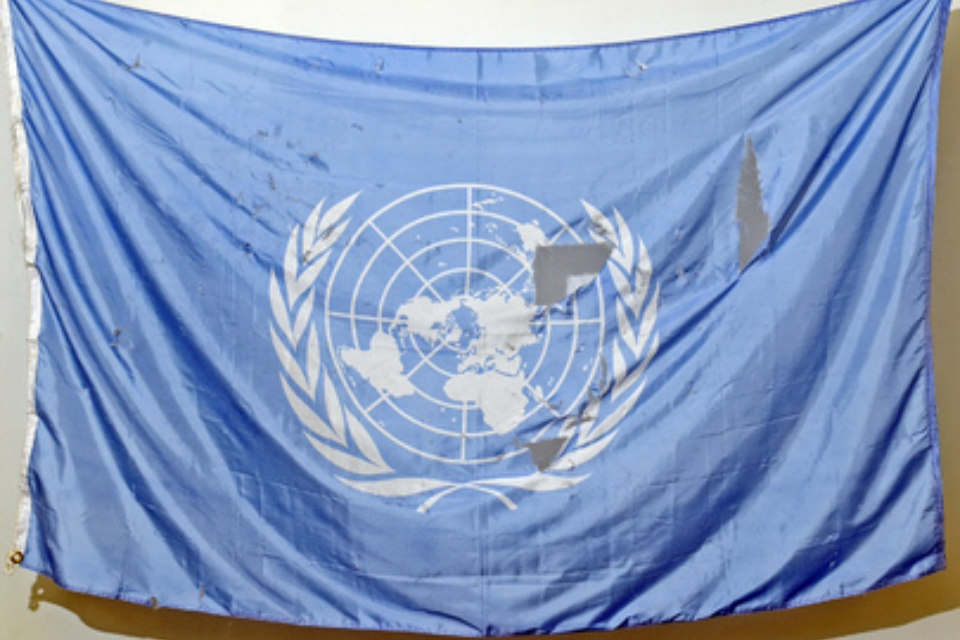"Multilateral cooperation must continue to effectively counter terrorism and violent extremism."
Statement on Counter Terrorism by Ambassador Jonathan Allen, UK Deputy Permanent Representative to the United Nations, at the Security Council briefing.

Thank you Mr President and may I also thank all the briefers here this morning. And let me take this opportunity to welcome you, Under-Secretary-General Voronkov, to your new office, to wish you every success, and to how much we are looking forward to working with you in your time.
Mr President, as all of us in this Chamber know only too well, international terrorist groups like Daesh and Al Qaeda seek to divide us. They seek to divide our communities and tear apart our countries, attacking our values and our institutions.
But in the face of their attempts to divide us, one of our greatest weapons is our ability to come together and to work together. And this Council is united in our desire to protect people across the world and to defeat terrorism. Our shared, multilateral counter terrorism system has never been so needed.
Each constituent part is crucial. The Global Counter Terrorism Forum and the Coalition against Daesh help forge our strategies and technical capabilities.
The United Nation’s Counter Terrorism Executive Directorate - or CTED - and the newly created Office of Counter Terrorism, marshal the resources of the United Nations to tackle both terrorism and violent extremism. And this Council has a vital role to play, producing ever-more sophisticated measures and guidance for states.
Mr President, I would like briefly to highlight two opportunities to improve and recalibrate the UN counter-terrorism approach.
First, we must maximize the impact and effectiveness of CTED. I would like to congratulate CTED for its work to date. It is a well-functioning UN entity with real expertise and knowledge. CTED’s proactive approach in new counterterrorism issues has been welcome. Their guidelines on foreign terrorist fighters and counter narratives are excellent benchmarks, and CTED’s work on public-private partnerships on the internet has been vital. For example, working with the ICT for Peace organization and the world’s largest tech firms in addressing terrorism and violent extremism content online.
Governments have also built new relationships with the private sector, as demonstrated last week, when my Prime Minister, along with partners from Italy and France, for the first time hosted the world’s largest information technology companies at the United Nations to address terrorists use of the internet.
The CTED renewal of the mandate at the end of this year is a chance to enhance its impact. This should include learning lessons on how to address emerging security issues; improving country assessments and ensuring that they are acted upon; ensuring technical expertise is fully used and providing guidance on prioritisation.
And we look forward to welcoming Michel Coninsx as the new Executive Director, and hearing her ideas for how to further improve this important office.
The second opportunity we see is to prioritise prevention, addressing the root causes and the violent extremism that spawns terrorism. For every person who radicalises to terrorism, there is first an environment in which ideology, economic factors and grievances are bent to a violent end by opportunistic leaders. This could happen, I’m afraid, in schools, places of worship, and prisons.
States can address a terrorist case with all of the intelligence, police, judicial, even military means at their disposal. But, as Under-Secretary Voronkov says, until we break the life cycle of radicalisation and terrorism, and address the environments in which calls to terrorism are espoused and take hold, there will always be another would-be terrorist waiting to emerge. That is why preventing violent extremism is a vital investment for peace and security, and why it was highlighted, I think, by [Secretary-General] Guterres when he established the Office for Counter Terrorism.
So I believe the strategic leadership and coordinating function of the Office of Counter Terrorism is vital here. The Office should use its central coordination role to look outside traditional peace and security analysis, and draw on UN expertise in human rights, development, gender issues and education, to name just a few. Only then can the United Nations help countries address a violent extremist threat before it explodes into a threat to international peace and security.
The UN’s potential to help states prevent violent extremism is unique, and rightly lies at the heart of the mandate of the Office for Counter Terrorism.
A question, if I may, to Under-Secretary General Voronkov: I found your elaboration of your strategy extremely helpful when you sent it out in your briefing, and I wonder if you have an opportunity, either now or later, to say more about how you see the Office for Counter Terrorism delivering the vital mandate from the General Assembly for the preventative pillar of the global UN CT strategy, and how you might use your chairmanship of the Secretary-General’s Preventing Violent Extremism High Level Group to coordinate this - it would be really good to hear some more on that.
Mr President,
Multilateral cooperation must continue to effectively counter terrorism and violent extremism. A smoothly functioning CTED, a newly established Office for Counter Terrorism and a truly strategic UN approach to prevention coordinated by the Office for Counter Terrorism are two concrete ways to assist this endeavour.
Thank you.